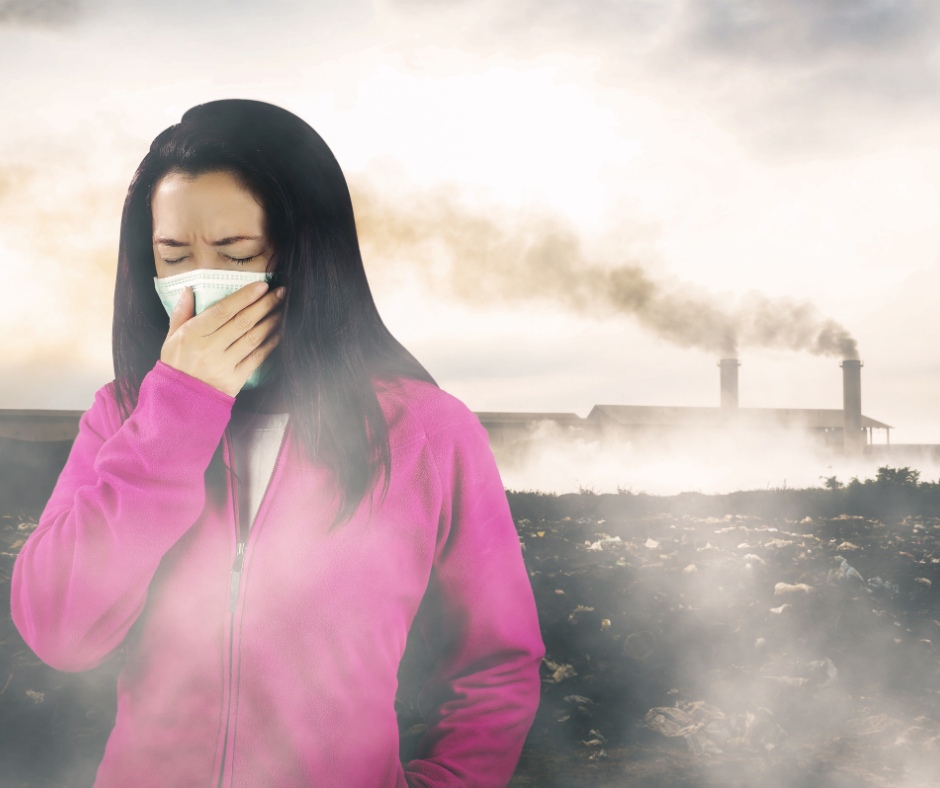Air pollution is often regarded as a silent killer. While its devastating impact on respiratory health and cardiovascular systems is well-documented, emerging research paints a grim picture of its effects on the brain. Air pollution is not just a physical health issue—it is a cognitive and emotional one as well, undermining our ability to think, learn, and feel.
The Hidden Threat
Tiny particulate matter (PM2.5), nitrogen dioxide (NO2), and other pollutants penetrate deep into the body through the lungs. While they wreak havoc on the heart and respiratory system, they also infiltrate the bloodstream, crossing the blood-brain barrier. This toxic intrusion can cause inflammation, oxidative stress, and even structural changes in the brain.
In cities plagued by smog and industrial emissions, the damage is not just physical—it affects mental health, cognitive abilities, and emotional stability. From children struggling to focus in school to adults grappling with early dementia, the link between air quality and brain health cannot be ignored.
How Air Pollution Affects the Brain
Cognitive Decline
Long-term exposure to polluted air can accelerate cognitive decline, particularly in older adults. Studies have shown that individuals living in areas with high pollution levels are at greater risk of developing Alzheimer’s disease and other forms of dementia.
Mental Health Disorders
Air pollution is associated with an increased risk of anxiety, depression, and even suicide. Pollutants trigger inflammation in the brain, disrupting neurotransmitter function and leading to mood disorders.
Developmental Issues in Children
Children exposed to polluted air during critical stages of brain development are more likely to face learning difficulties, attention deficit hyperactivity disorder (ADHD), and lower IQ scores.
Stroke and Neurological Disorders
Pollution-induced inflammation and blood vessel damage heighten the risk of strokes and neurological disorders like Parkinson’s disease.
The Ripple Effect: A Societal Crisis
When air pollution affects brains, it doesn’t just harm individuals—it weakens societies. Students perform poorly in academics, workers become less productive, and healthcare systems bear the brunt of treating chronic conditions. The economic cost of air pollution is staggering, but its human cost is incalculable.
What Can Be Done?
Individual Actions
- Invest in Air Purifiers: Use air purifiers in homes and offices to reduce indoor pollution levels.
- Limit Outdoor Activities: Avoid outdoor exercise during peak pollution hours, especially in urban areas.
- Adopt a Greener Commute: Use public transportation, cycle, or carpool to reduce vehicle emissions.
Community Efforts
- Green Urban Spaces: Advocate for more parks and green belts in cities to improve air quality.
- Plant Trees: Trees absorb pollutants and act as natural air filters.
- Raise Awareness: Educate communities about the dangers of air pollution and the steps they can take to combat it.
Policy-Level Changes
- Stronger Emission Controls: Governments must enforce stricter emission standards for industries and vehicles.
- Promote Clean Energy: Transition to renewable energy sources like wind and solar.
- Monitor Air Quality: Invest in real-time air quality monitoring systems to ensure transparency and accountability.
Call to Action: A Healthier Future Depends on Us
The battle against air pollution requires a multi-pronged approach. As individuals, we must make lifestyle changes to reduce our exposure. As communities, we must demand action from policymakers and industries. And as a global society, we must commit to sustainable practices that prioritize health over profit.
Our brains, hearts, and lungs depend on it. The time to act is now. Let us not wait until the damage is irreversible. Join the movement to clean our air and safeguard our future—for ourselves and generations to come.




